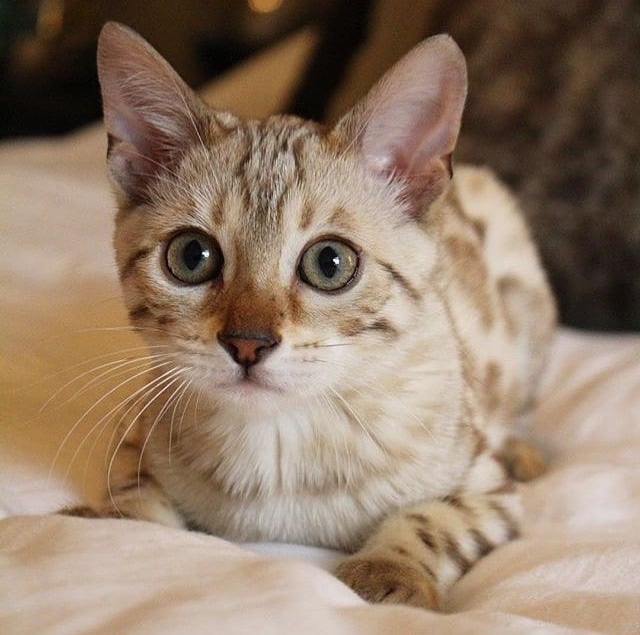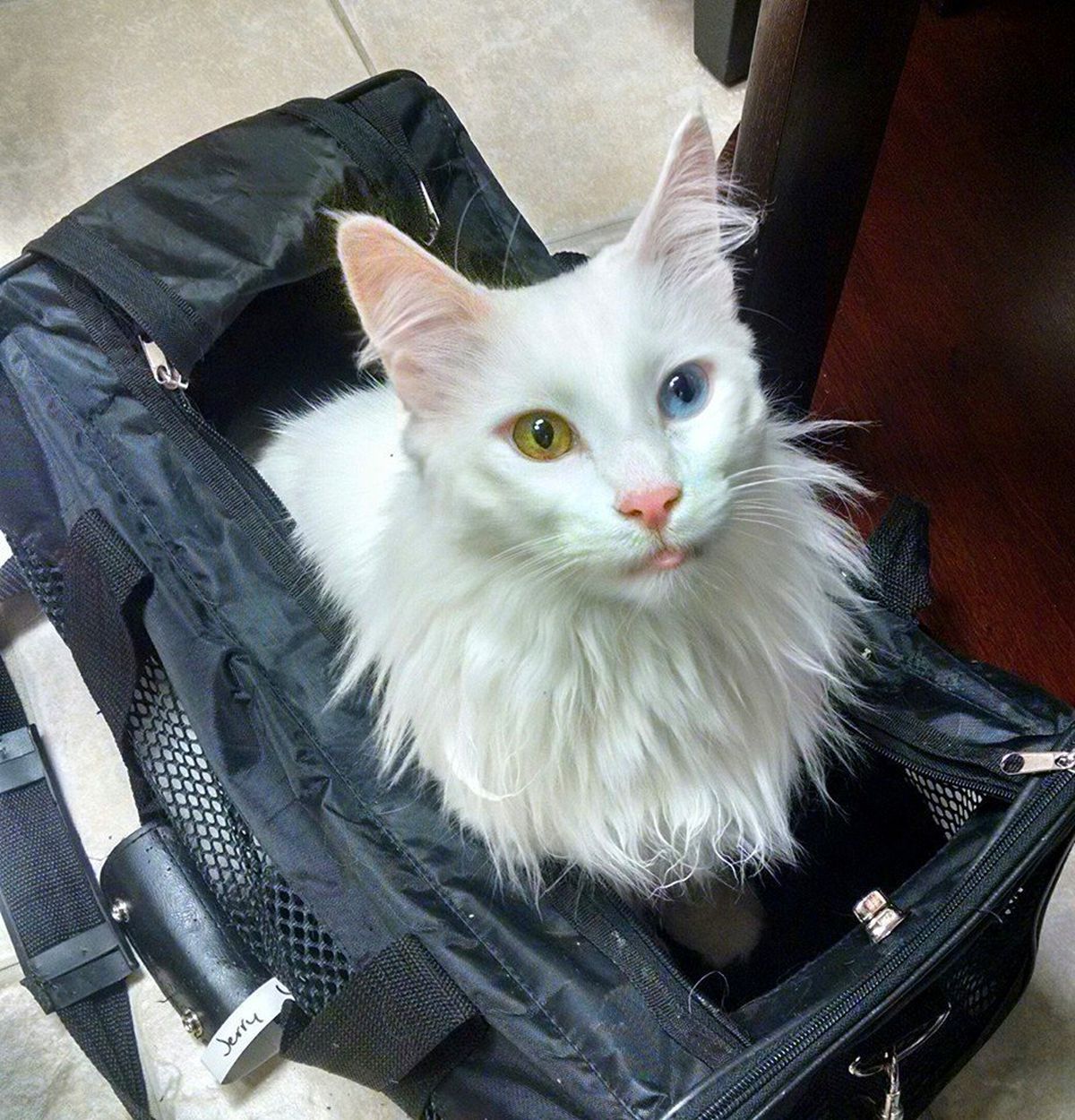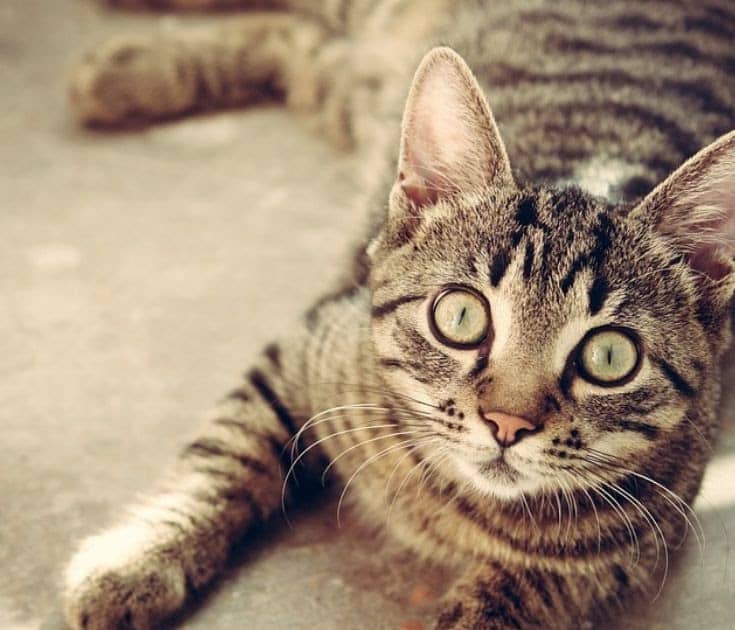Does My Kitten Only Need Core Vaccines
We tailor vaccines to an individuals lifestyle you may hear about this approach as core and non-core vaccination. Core vaccines would be those vaccinations that all cats should get due to the high risk of infection or severity of an infection. Noncore vaccines are selected based on where your cat travels and what they do. Your kitten may need core vaccines and more it is a decision you and your veterinarian can make together.
Your Cat Is Overdue For A Booster Vaccination
The vaccines are safe to give your cat as old as nine months. If a dog or cat had only received one dose of core vaccines three years ago, they should be reimmunized. It is recommended that all core vaccines, including the rabies vaccine, be administered with this recommendation regardless of manufacturer. Depending on their individual circumstances and health, cats may or may not need to be vaccinated. Some vaccine manufacturers have developed vaccines that can be used for three years or more. Booster shots for cats more than three years old are recommended.
Benefits And Drawbacks Of Vaccines
Vaccinating your cat can help protect it and other cats from serious diseases. It will also help protect people from diseases, such as rabies, that can be transmitted by cats.
Vaccinations can also have reactions that range from mild to severe. Every cat can react differently, but there are a few symptoms you can look out for.
- Swelling: Lumps and swelling in specific areas are also common side effects. A firm bump usually develops at the injection site. Its essential to keep an eye on it for signs of inflammation, growth, or infection. It typically passes within a week, but if it doesnt, and it has grown or seems infected, you will need to contact your vet.
- Lethargy and a mild fever: These signs should be mild and last only 1 or 2 days, but if it goes on longer than 2 days, you should consult your vet.
- Cold-like symptoms: Some vaccines are administered through your cats nose or eyes, which can lead to cold-like symptoms such as sneezing, coughing, and a runny nose and should pass within a day or two.
If your cat has a severe reaction from a vaccine, the signs will appear either straight away or up to 48 hours later. These signs include facial swelling, vomiting, diarrhea, and difficulty breathing. Anaphylaxis is the most severe allergic reaction that pets can experience due to vaccinations, and it can be life-threatening if not treated immediately.
Don’t Miss: Advantage Flea And Tick For Cats
Why Do Pets Need Booster Shots
After the initial shots , kittens need further injections when they are approximately 12-, 16- and 18-weeks-old. This is because the protection kittens get from their mothers is limited and varied. As well, each booster strengthens the effects of the previous shot. After they finish their round of kitten vaccines, cats must still be vaccinated throughout their adulthood for continued protection.
How Do I Prevent Fleas On My Kitten

No matter where you live, fleas may be a threat to your kitten and to your household. Fleas spend a short time on your kitten and then venture out into your home. Adult fleas feed on the cats blood, then hop off their host to lay eggs in the environment. Eggs hatch and the emerging larvae live and feed in your home. Larvae mature into pupae which lie dormant in your carpets, furniture, and floorboards. The pupae eventually hatch into adult fleas. The entire flea life cycle can take as little as 3-4 weeks under ideal conditions in unfavorable conditions, the cycle can take as long as a year. Therefore, it is important to kill fleas on your new kitten before they can become established in your home.
“Many of the flea control products that are safe on dogs are dangerous for kittens.”
Many of the flea control products that are safe on dogs are dangerous for kittens, so consult your veterinarian before choosing a flea control product. There are many safe oral and topical medications that control fleas, treat intestinal worms, and prevent heartworms all at the same time. These products are administered once a month, even in young kittens, and will protect both your cat and your home from fleas. Newer flea prevention products last 3-8 months. For more information on flea control, see the handout Flea Control in Cats.
Recommended Reading: Flea Tick And Worm Treatment For Cats
Vaccination Schedule For Kittens
The Spruce / Ellen Lindner
Your new kitten deserves the best start in life. This means providing everything she needs to grow and stay healthy. Vaccines are an important part of your kitten’s health care plan. Basic immunizations are essential to prevent your kitten from getting sick and avoid the spread of disease.
Cat Vaccinations : Everything You Need To Know
When it comes to cat vaccinations, you cant just give all cats the same shots. You may hear conflicting opinions about what your cat needs and what will keep your furry friend safe from disease. This can be confusing, especially if youre a new cat parent. With that in mind, weve put together a short guide on cat vaccinations.
Dont Miss: Are Corn Plants Toxic To Cats
Read Also: How Much Catnip Can A Cat Have
What Is The Feline Distemper Vaccine Called
The term Feline Panleukopenia, or Feline Parvovirus, is more likely to be used than Feline Distemper. The vaccination is usually given as a combination vaccine, in the form of the FVRCP vaccination, and so it may be included in general terminology like shots, vaccine boosters etc. For more detail on precisely what vaccination your cat is being given, you should always discuss the details with your own veterinarian.
How Do Vaccines Work
Vaccines or vaccinations work by stimulating the animals immune system, so that their bodies natural defences are prepared and fully equipped with antibodies to fight against any diseases. Unfortunately if your cat is not properly vaccinated, their bodies immune system will not be armed to fight off any virus or bacterial infection.
Recommended Reading: Why Do Cats Meow Back At You
Recommended Reading: What Milk To Give Kittens
Kitten Vaccine Schedule For First
One of the most important things you should do in your first few weeks as a cat owner is vaccinating your kitten. Vaccines help protect your pet from serious infectious diseases and prevent them from passing an infection on to other pets in your area.
But what shots do kittens actually need? When should kittens have all their shots by, and how much do kitten shots cost?
Heres everything you need to know about first-year kitten vaccines:
- 9-11 weeks: FVRCP Optional: FeLV, FIV
- 12-14 weeks: FVRCP Optional: FeLV , FIV
- 15-17 weeks: FVRCP , Rabies Optional: FIV
- 1-3 years: FVRCP booster, Rabies Optional: FeLV & FIV boosters
What Are The Necessary Shots For Kittens
Kittens and cats both typically receive the same vaccines. For most, this means protection against Cat Flu , Feline Panleukopaenia Virus, and Feline Leukaemia Virus . These are known as the core vaccines as they are the ones that protect against diseases that can cause significant health issues in our kitty population. While this may seem like a lot of jabs, luckily, most vets can administer these in one single injection .
There are also a number of non-core vaccines, which the majority do not receive. These include Rabies, Chlamydia felis, and Feline Immunodeficiency Virus .
1. Cat Flu
Signs of cat flu include runny eyes, sneezing, and a failure to thrive. Some kittens can become very ill and may pass away if severely affected. Cat Flu is highly contagious, so if one kitten in the litter is affected, the other will likely start to show signs soon. Frustratingly, even those that recover from flu will be infected for life and can suffer from flare-ups throughout their lifetime, especially at times of stress.
2. Feline Panleukopenia Virus
Also known as Feline Distemper, Panleukopaenia is akin to the better-known Parvovirus in puppies. It makes kittens very unwell and symptoms include vomiting, diarrhea, and a reduced appetite. The mortality rate is high, and, as with other viruses, there is no cure. This means that affected kittens and cats are managed with intensive supportive care, usually in a hospital setting, hoping they will pull through.
4. Rabies
Don’t Miss: How Much Food To Feed A 3 Month Old Kitten
Risks Of Vaccines For Kittens
Although there are some risks when vaccinating your kitten, theyre very minor. Similar to humans, kittens who receive vaccines may experience some initial side effects, such as a low fever, decreased appetite, localized swelling, or tiredness.
These symptoms, however, usually start shortly after the vaccine and last only a few days. If your kitten continues to experience side effects, contact your veterinarian.
Some kittens may experience an allergic reaction to a vaccine. An allergic reaction can cause itchiness, hives, and swelling of the face, so if you see any of these symptoms, youll want to take your cat to the vet immediately, and reconsider vaccinating your kitty in the future.
Finally, in other rare situations, cats can develop feline injection-site sarcomas, or FISS. This type of malignant cancer is thought to be caused by persistent swelling from the spot where a cat was vaccinated, and has been associated with the FeLV vaccine and rarely, the rabies vaccine FISS tumors are aggressive and invade surrounding tissues, and can require surgery and radiation for treatment.
Overall, veterinarians and feline medical organizations like the AAHA and AAFP agree that the incidence of negative side effects as a whole is low, and the benefits of core kitten vaccines outweigh the risks.
How Much Do Cat Vaccinations Cost

Prices can vary from practice to practice and costs will depend on which vaccinations your cat or kitten receives. Speak to your vet to see if they offer a health care plan for your pet. These allow you to spread the cost of preventative veterinary treatment, such as regular health checks, annual vaccinations and flea and worm treatments. We might be able to help with vet costs if you meet our eligibility criteria.
Also Check: How Long Are Cats Pregant For
What Vaccines Do Cats Need Are We Under
When researching this article, I did not speak to experts with all possible perspectives, of which there are many on the topic of vaccines, or I could have authored a book. I spoke with leaders with undeniable expertise, many who helped craft the American Association of Feline Practitioners Guidelines for Vaccines.
Love or hate vaccines, its a fact: Vaccination plays an important role in the control of infectious diseases, both for an individual as well as for the cat population at large . Every several years, feline experts come together to update the AAFP vaccine guidelines. The most recent panel, in 2013, was chaired by Dr. Margie Scherk, editor of the Journal of Feline Medicine and Surgery.
After reviewing literature regarding feline vaccines, Dr. Scherk comes down with a vastly different conclusion compared with what some cat caretakers contend. She says, Were not over-vaccinating were actually under-vaccinating cats.
Her explanation is that, for starters, too many cats never see a veterinarian until that individual cat is clearly very ill. Obviously, if the cat isnt seeing a veterinarian, the cat isnt getting vaccinated. Also, concerns of some cat caretakers is a roadblock: about the need for specific vaccines, that their own cat is being vaccinated too often, concerns about injection site sarcoma and, in some instances, the vaccine cost.
What If I Don’t Know My Cat’s Vaccination History
For many cats adopted from shelters, the vaccination history may be unknown. At Affordable Animal Hospital, we recommend the following approach:
Your cat should receive two distemper shots about 3-4 weeks apart, your cat should also receive two shots for feline leukemia about 3-4 weeks apart, and rabies vaccinations should also be administered.
Also Check: Purina Cat Food For Allergies
Is It Really Necessary To Over
When given safely, multiple vaccinations can be given at the same time. Multiple vaccines are not associated with long-term health problems, according to research. We recommend that you separate vaccines for your cat based on his or her medical history because over-vaccinating your cat can be harmful.
Why Rabies Vaccinations Are Important
Cat vaccinations, especially for indoor cats, are often overlooked. However, a rabies vaccination is an important part of keeping your cat healthy. If your feline friend goes outside, a rabies vaccination is an absolute necessity. Rabies is transmitted from an infected animal through a bite or scratch, so just a small scuffle with an infected animal could pose a threat to your cat. Unfortunately, there is no effective treatment for cats who develop rabies, so prevention is the only way to protect your pet. A simple vaccination once a year can protect your kitten from a potentially life-threatening disease.
Also Check: What Can I Give My Sick Cat
Vaccinating Pregnant Or Nursing Cats
We recommend that vaccinations should not be given to a pregnant or nursing cat, unless the manufacturer of the vaccine has been tested for safety during pregnancy or nursing. Vaccinating a nursing cat will not pass on vaccine protection to growing kittens. Another reason to not vaccinate pregnant or nursing cats is that their body is under a great stress already. Your cat will be better prepared for any vaccination after having time to recover from pregnancy and nursing kittens.
Does My Kitten Need Only Core Vaccines
Cats that go outside, live in multi-cat households where other cats go outside, or cats that go to boarding kennels should receive the feline leukemia vaccine. Feline leukemia is spread by any bodily secretion , so direct contact with other infected cats is not necessary to transmit disease. There is no cure if a cat becomes infected and cannot clear the virus. The virus suppresses the immune system and predisposes cats to lymphoma, and deadly infections. It is recommended that all kittens receive the feline leukemia vaccine the first year of life, as many kittens that were initially going to be indoor only, start going outside. The feline leukemia vaccine is given at 12 and 16 weeks of age.
Recommended Reading: How Long Does A Cats Heat Cycle Last
Don’t Miss: Why Do Cats Wander Off For Days
What Should I Feed My Kitten
Proper nutrition is essential for growth, so it is important to choose the right food when your kitten is weaned. Cats are obligate carnivores and require meat protein in their diet. This protein should be of high quality, so choose a name-brand food specifically formulated for kittens that is made by a reputable cat food company. Growing cats have different nutritional requirements than adult cats, so kitten food should be fed until your kitten reaches twelve months of age.
“Cats are obligate carnivores and require meat protein in their diet.”
Buy food that has been certified by a recognized organization as complete and balanced. This means that the food is nutritionally complete to meet the needs of growth and development. In the United States, you should look for food that has been certified by AAFCO, an independent organization that oversees the entire pet food industry. In Canada, look for foods approved by the Canadian Veterinary Medical Association , or foods that are labeled as having been tested by feeding trials. Your veterinarian can provide you with specific dietary recommendations that will help your kitten develop into a healthy adult cat.
Cat foods are available in dry, canned, and semi-moist formulations that should all bear a label stating that the food is intended for kittens. Each of the types of food has advantages and disadvantages.
Heres When Your Kitten Needs His Shots

When it comes to your kittens vaccines, it can be hard to keep track of which shots he needs and when.
Your veterinarian can help you determine your kittens recommended vaccine schedule, but its helpful for a pet parent to know what to expect so they can have informed discussions with their vet about their kittens health.
The Dodo spoke with Dr. Debra Eldredge, a veterinarian with Senior Tail Waggers, to break down a typical kitten vaccine schedule.
Read Also: Orijen Cat And Kitten Food
Should I Take My Kitten To The Vet For Felv
When you take your kitten in for vaccinations, ask your vet to test for feline leukemia . This dangerous virus is contagious and can spread from cat to cat. Theres a vaccine for feline leukemia but even after your young kitty is protected, its best not to expose them to cats that have not been tested for the virus.
Recommended Reading: Is My Cat Playing Or Fighting With Me
What Are Some Early Signs And Symptoms That My Kitten Might Have Health Issues
Watch for diarrhea that does not go away after a few days, vomiting, and kittens not being interested in eating. Those are common signs. Also, you might see upper respiratory signs like sneezing and/or eye issues. Those are the common signs that you might see and, if you do see those, obviously let us know so we can figure out whats wrong with your kitten.
Dont Miss: Holt Cat Austin Austin Tx
You May Like: Purina One Cat Food Sensitive Stomach
Will My Kitten Be Required To Have A Booster Injection
A booster injection should be given against cat flu, feline panleukopenia and feline leukaemia between 12 and 16 weeks.
Once your kitten is a year old, your vet should also administer the annual boosters for the same viruses.
Read about kitten boosters to understand which injections your kitten will be required to have, and when.
Read Also: Lactulose Oral Solution For Cats